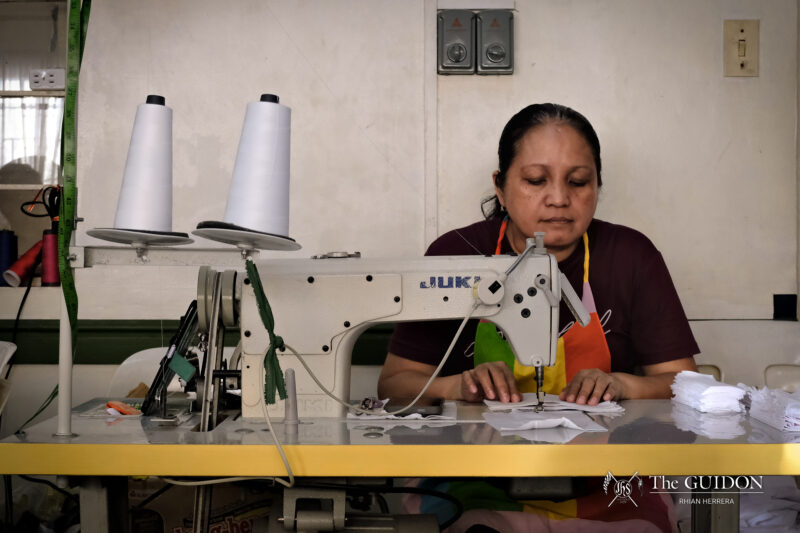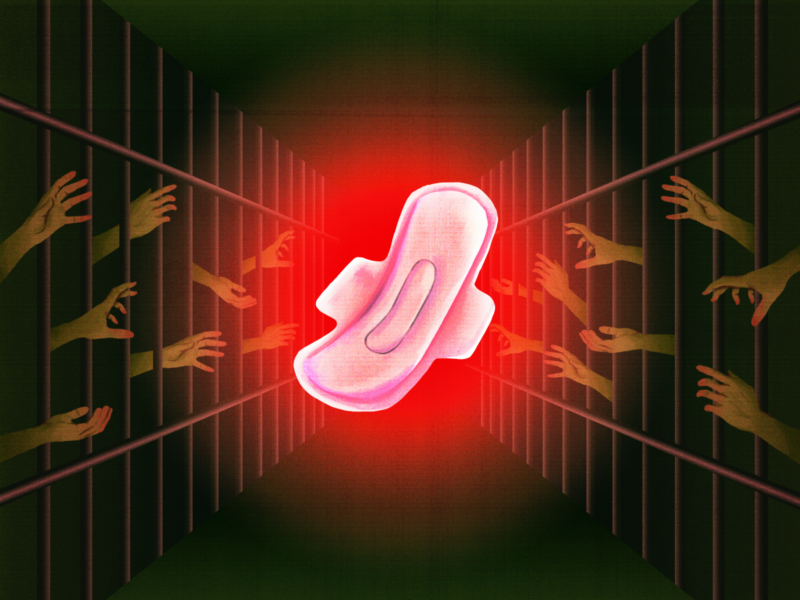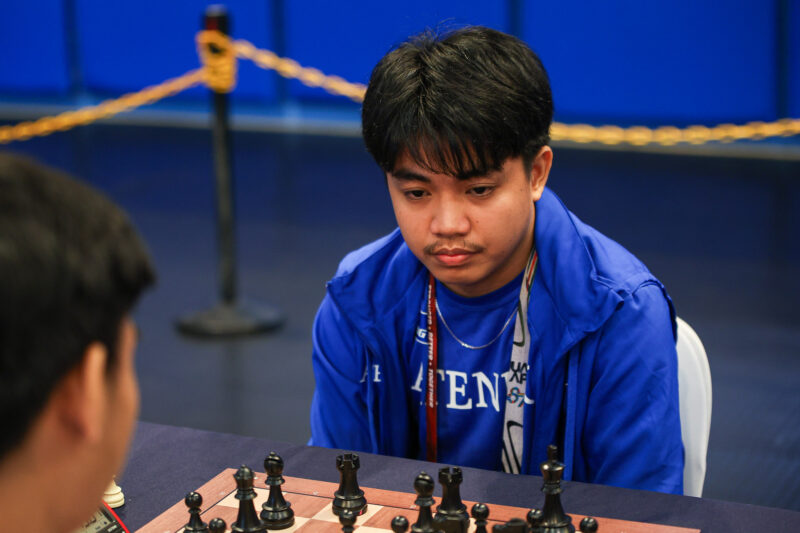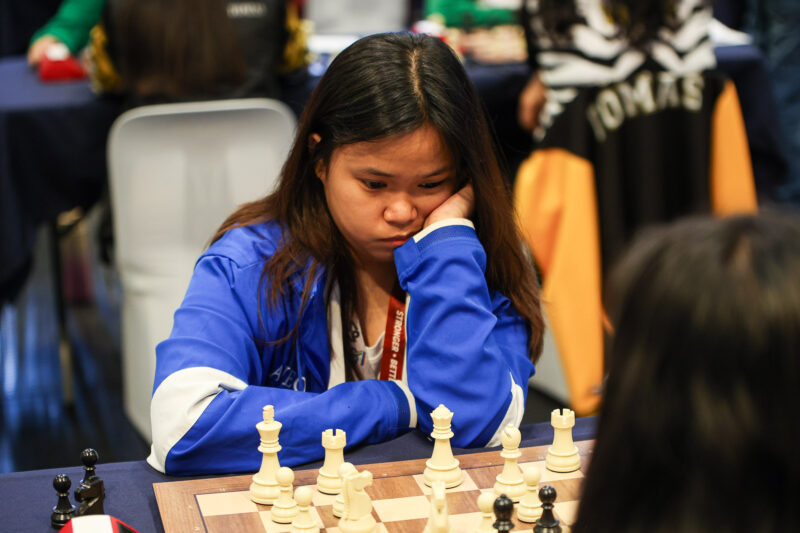SOCIAL GATHERINGS, family, and tradition are important facets of the Filipino life. As quarantine measures stretch on in response to increasing COVID-19 cases, these facets are not spared from drastic losses and changes. Although people have found innovative ways to celebrate life through online means, there is a deafening silence on how Filipinos now mourn and grieve.
In stark contrast to week-long wakes and padasals that were commonplace pre-pandemic, the funerary halls today only echo from the emptiness. Despite changes in tradition, the COVID-19 crisis has proven that the Filipinos’ grief and mourning carry on. Two frontliners and two grieving students attest to this, sharing their encounters with death this quarantine.
Death in the new abnormal
It begins with the last beep of the holter monitor. Tears and denial follow as family members flock the halls of the hospital. The doctors and nurses bid their condolences, and the bereaved family mourns by the bedside.
The bleak hours of the vigil are only made bearable by the company of family and friends. Traditionally, Filipinos hold wakes in either the home of the deceased or in a funeral parlor. Regardless of the place, people come with food, flowers, or abuloy to offer. Every night is marked by the arrival of the priest for the vigil.
The second part of mourning begins with the burial day procession. The funeral reception’s walls suffocate as the family’s goodbyes and tears muddle with the priest’s final prayers. The mourning does not end with the burial, but a new chapter of hope opens as friends and family help carry the pain.
None of these ceremonies are possible in the COVID-19 pandemic, and healthcare workers bear the new protocols in socially-distanced mourning. For the past seven years that Sydney Marie Ponce has worked as a nurse at Amante Hospital in San Pedro, Laguna, she did not expect that witnessing deaths could get any more heartbreaking.
Ponce recalls that the relatives of the patients pronounced dead did not have to fear staying by their loved one’s side to mourn. Now, patients classified as persons under investigation or COVID-19 positive are immediately placed in a cadaver bag while awaiting cremation.
On the other hand, for deaths unrelated to COVID-19, the relatives are given the chance to see the cadaver and decide on the burial process given that the service provider has a proper legal sanitation permit. However, for deceased patients whose confirmatory tests are not yet released, Amante Hospital insists on immediate cremation.
Proving COVID-19’s pervasiveness in the country, similar strict protocols are observed in Initao, Misamis Oriental. Jane*, a healthcare worker in the municipality shares that isolation is among the most important protocols to curb the spread of COVID-19.
“Kung mag-positive, amo sila i-separate. Naay separate holding area for them. Walay contact with others (If they test positive, we separate them. There is a separate holding area for them. And there is absolutely no contact with others),” she shares.
If a COVID-19 patient in Initao passes away, no vigils are allowed to take place. Jane explains that patients need to be buried or cremated within 12 hours of the patient’s death because the virus can still transfer to another host. However, immediate burials may only take place provided that anti-congregation rules and social distancing protocols are duly observed.
The pain of implementing strict safety protocols to the grieving family, then, rests on our health workers. For them, the challenge is not so much the grueling work hours and routine, but bearing the news of strictly distanced mourning.
Ponce reminds, “Imagine the pain [the bereaved] are feeling because of their loss. They beg to see the patient’s body one last time but it is not allowed…we in the health care department are mentally breaking seeing this kind of situation.”
As the COVID-19 death toll rises, we often forget that the numbers mean more than mortality; they are a testament to the pain of a quiet farewell that the bereaved always carry.
Quarantined mourning
A witness to the altered grieving process of this pandemic, Myara Poliarco (3 AB DipIR) shares her experience of losing her grandfather to COVID-19. Tatay, her grandfather, was rushed to the hospital at dawn on March 22. A few minutes before his death, the hospital staff informed the family that resuscitation would not be helpful as it could damage his internal organs.
Although her family agreed not to resuscitate him anymore, Poliarco shares how the anticipation of his death did not make it any less crushing. She recounts, “Kung gaano kalakas ‘yung pagdasal at pag-iyak namin sa bahay—when we heard na wala na si Tatay—ganoon din ka lakas ‘yung silence (The volume of our prayers and cries in the house were as loud as our silence when we heard that Tatay was gone).”
Fully aware of the strict protocols regarding COVID-19 deaths, the most that Poliarco’s family hoped for was to see his cadaver. “We had to beg the hospital to release the body…but since it was COVID then, wala na kaming choice but to have him cremated,” Poliarco recalls.
The silver lining for Poliarco was controlling some terms of Tatay’s cremation. She laments, however, that these protocols only favor a few. “Yung iba, hirap sila kasi…ilalagay lang sa plastic bag yung ashes….[you are paying] your final respects at ilagay mo lang sa plastic (The others are having a difficult time because you’re paying your final respects, but the protocol is to just put the ashes in a plastic bag).”
As per quarantine regulations in Metro Manila, no vigils were allowed for the family. Instead, Poliarco shares how the most they could do was pray with each other.
For Serge Cua, a political science junior from the University of San Carlos in Cebu, being allowed to have small wakes and burials still worsens the pain caused by loss.
Surmounting two encounters with death in this pandemic, Cua shares losing his grandmother, Mommylo, first. He recalls having an intimate vigil for her that lasted three days before her burial. However, having barely recovered from one loss, Cua shares having to confront another. “On the day of her burial, we left lolo at home because senior citizens aren’t allowed to go out. When we came back home hoping to recover from an emotionally draining day, lolo left us without even saying a proper goodbye,” he says.
Cua’s family had to go through the ordeal of a socially-distanced, one-day vigil and burial again, this time for his lolo. Though grateful for at least being able to hold a mass before bidding their final farewell, Cua still believes that the new protocols come at the cost of properly paced emotional healing.
Carrying the pain
With prolonged social restrictions, it becomes easy to forget that tragic stories lie beneath the growing statistics. Jane and Ponce have shown how their hearts break at the frontlines for the loss of families in this quarantined reality.
It is when one experiences death firsthand that the statistics become testament to pain. Poliarco and Cua challenge us to remember that there is no point moving forward if we only keep ourselves safe and forget the love and sorrow behind the rising death count.
With memories of their loved ones still safely with them, however, Poliarco and Cua share their dreams and aspirations: To be able to hug someone again, to do things with renewed vigor and enthusiasm, and to move-armed with the lessons of this pandemic into a better tomorrow.
*Editor’s Note: The interviewee’s name has been withheld upon her request in order to protect her identity and privacy.







